Billy Liddell was one of Liverpool’s greatest ever players, so good they called us ‘LiddellPool’. He was born on this day 100 years ago.
In an extract from Liddell at One Hundred: A Family Portrait of a Liverpool Icon, author Peter Kenny Jones tells the story of one of the most infamous goals that never was in Liverpool’s history…
The overarching Liddell legacy today seems to boil down to three things. The team being known as Liddellpool, him and Stanley Matthews being the only players to represent Great Britain more than once, and his goal that never was against Manchester City in 1956.
In the round before the famous FA Cup tie with Manchester City, Billy had managed to keep the tie alive after he scored his second in the final seconds of the match against Scunthorpe with a tremendous header, taking the match to a replay at the Old Show Ground.
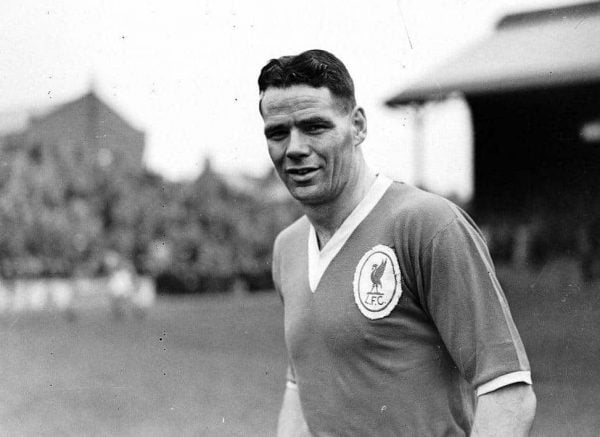
Billy spearheaded the victory over the Third Division side with a goal and an assist, setting up the Man City match in the fifth round, which finished 0-0, despite a highly contentious Liddell goal ruled out for offside. They headed to Anfield for the replay.
The cup acted as a reminder of past glories for Liverpool during this period and often attracted the largest gates in Second Division seasons.
On that February Wednesday afternoon (the days before floodlights enabled midweek evening matches) over 57,000 were in attendance on a day so cold that kids were building ice blocks in the streets, to witness a moment synonymous with Billy’s career: ‘Twenty years hence, though I shall not be here, my successor will probably still be answering readers’ questions about the gallant Liddell goal which was 15 seconds too late to produce a period of extra time.’ The Liverpool Echo was close, as now over 60 years since the day, the match remains contentious.
With two minutes left in the match, Liverpool and Man City were level 1-1 after nearly 180 minutes of football over two matches. With just one minute remaining, Lancashire-born Joe Hayes put City ahead, despite the match seemingly being destined for extra time. Then came the controversy.
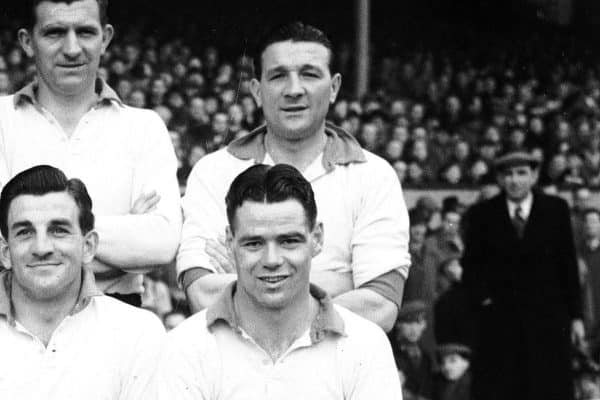
Sandy Griffiths became vilified on the red side of Merseyside, much like Clive Thomas in 1977 and Pierluigi Collina in 2005 became for the blue half, and was never to referee Liverpool again following this match.
There were mere seconds left when Griffiths claimed that both his linesmen had signalled to him that the match should have ended. He blew his whistle at 45 minutes and 15 seconds of the second half. Only 15 seconds were added on despite injuries and three goals occurring during the period.
Clearly paying more attention to his stopwatch than the action, Griffiths blew his whistle just as Billy carried the ball from the halfway line on a snow-dressed Anfield turf and unleashed a 35-yard thunderclap that nearly broke the net.
Despite the ball flying into the goal past Bert Trautmann and sending the crowd into a frenzy, the whistle had signalled the end of the match before the goal was scored. Or had it?
The legend of the goal will be forever remembered because of the lateness of the non-goal and the controversy that surrounded it. This hullabaloo did not fully come to the fore until the following day as the Liverpool Echo published its ‘Dramatic Liddell Picture’. Despite Griffiths claiming that Billy was 15 seconds too late, the image of the referee with his arm in the air after the ball had left Billy’s right foot put this into dispute.
The drama and folklore surrounding this moment has made it a favourite tale of the Second Division days.
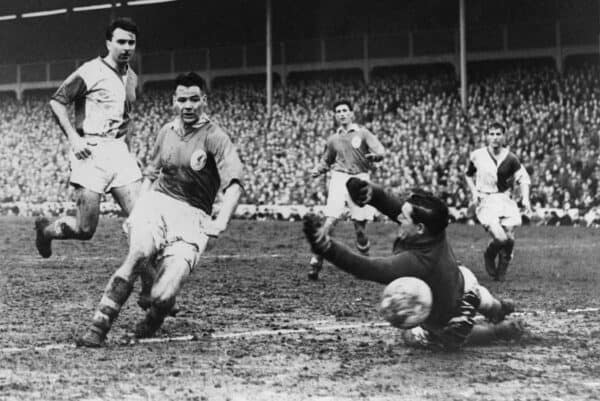
Further legend around the goal grew after stories circulated that City skipper Roy Paul was giving the referee a lift home to Wales, so he did not want a period of extra time, as he could get home earlier. Griffiths had a Clive Thomas-esque reputation for wanting to make the game about themselves, the referee, rather than just officiating. This thirst for attention and the apparent meter running on his lift to Wales have only added to the legend of this famous event.
Due to the match being played on a Wednesday afternoon, the crowd was full of work- and school-dodging, or sagging, supporters and the mischievousness of their attendance has no doubt built the mystique around the match and ‘goal’.
Even with Billy’s humble nature, due to the fact he would be asked about this goal so often, he admitted it was a great finish when it came up in conversation. The fact that City also went on to win the FA Cup that season, further cements the legend around the day.
Many of the fans present had not heard the whistle that followed Billy’s ‘goal’, so remained in the ground in anticipation of the extra-time period that was to follow. In a hope to empty the ground, there had to be an announcement over the tannoy to confirm that the match had finished 2-1 and Liverpool were out. Griffiths was lucky that he had managed to leave the pitch before many were made aware of his controversial decision!
The only question that can really remain with Liverpool and Liddell, is why did he stay?
This certainly was not an era of money-chasing players, mainly because of the wage cap of £20 that was in place. However, personal success and accolades must have been an incentive for many players. Nobody enjoys playing in a team below their own standard, and Billy was above Liverpool and the division they were in.
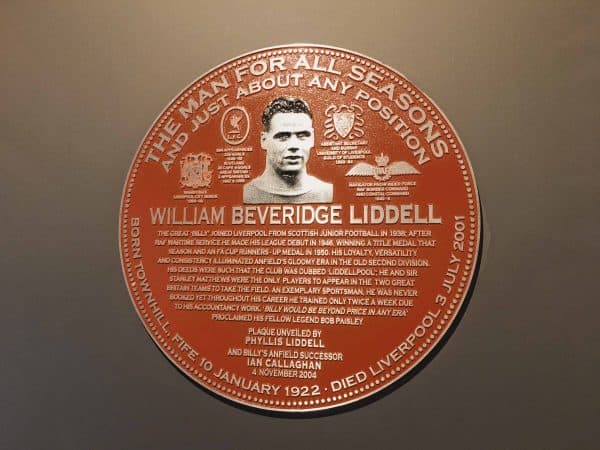
He would not have been alone in his pursuit of trophies if he had chosen to leave Liverpool.
One example is someone who would share a Great Britain dressing room with Billy, John Charles. The Welshman, much like John Watson’s transfer to Real Madrid in 1947, moved to Juventus in 1957. The two saw the lure of the chance of success abroad as big enough to leave their homes and take a chance. The lack of wage caps in certain countries would also have provided Billy the opportunity to earn more money for his family.
The truth is, no one will know for sure why, but it is possible to make a fair guess. Billy had been at the club since before the war, he had met his wife and now rehoused his whole family in the city.
His humble nature would have meant that he did not need trophies; money would certainly have helped though. The guaranteed job in accountancy was probably as big a factor as anything else.
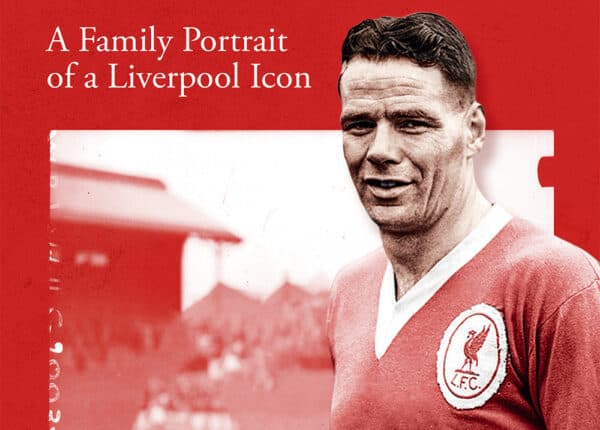
Life after football was a financial consideration for players in this era. The club had been good to Billy and he was loyal in his nature, he was not for sale and never wanted to leave.
Creating a Liverpool legacy is not an easy feat, and Billy did it without asking for it.
Liddell made Liddellpool through performances, important goals, ghost goals, personal accolades and loyalty. No one event creates a legacy, but over 20 years of service and prodigious performances certainly helps and that is how Liddell became the main man of Anfield.
* This is an extract from Liddell at One Hundred: A Family Portrait of a Liverpool Icon, available from Pitch Publishing here.
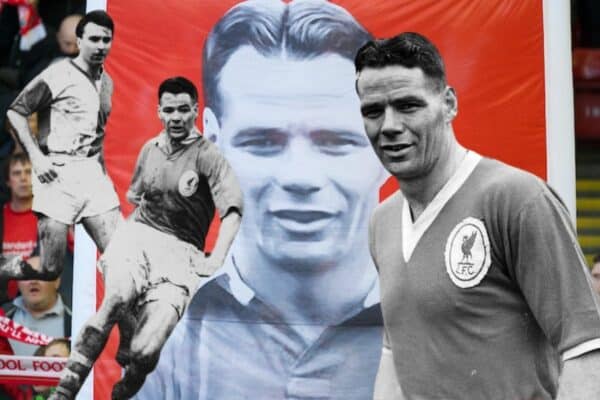
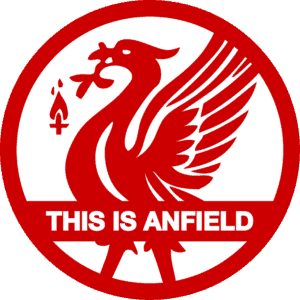

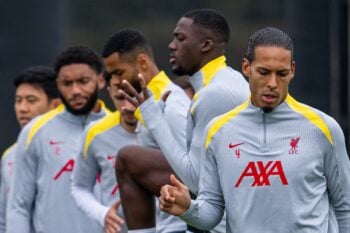

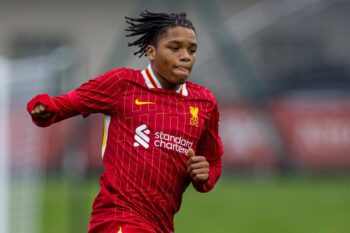

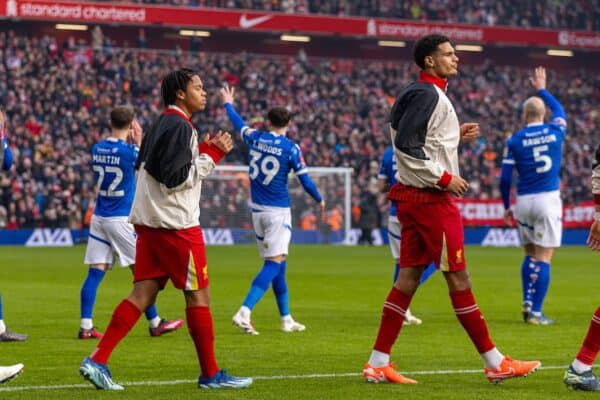
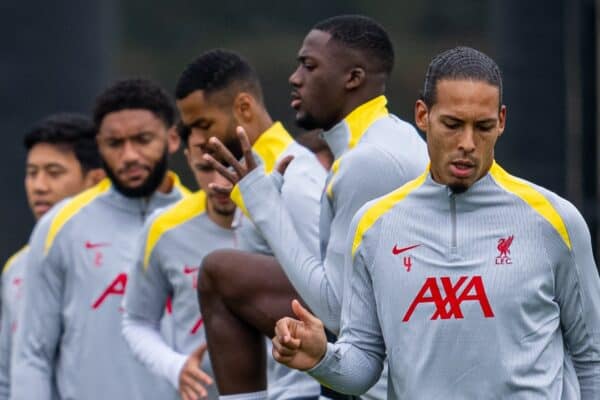
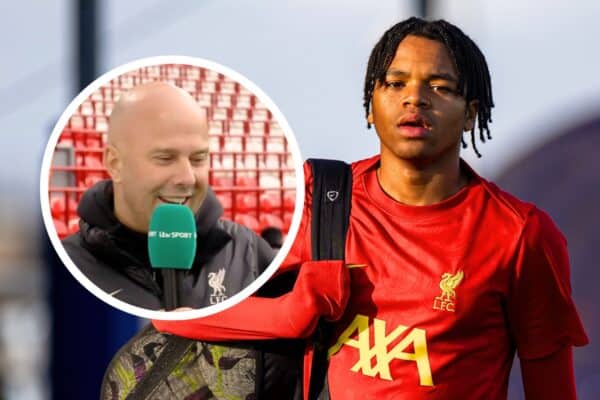
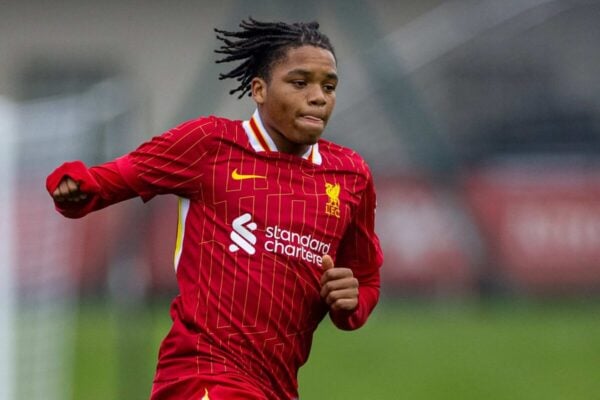
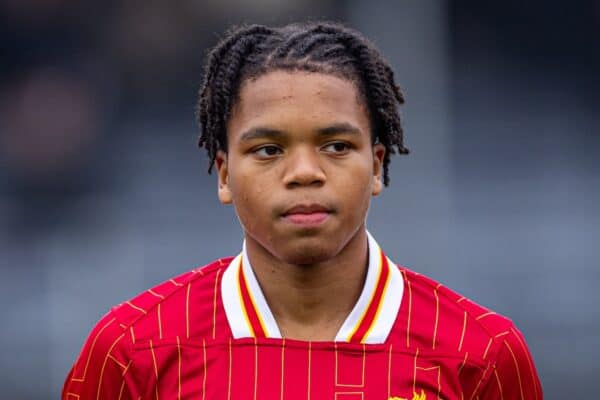
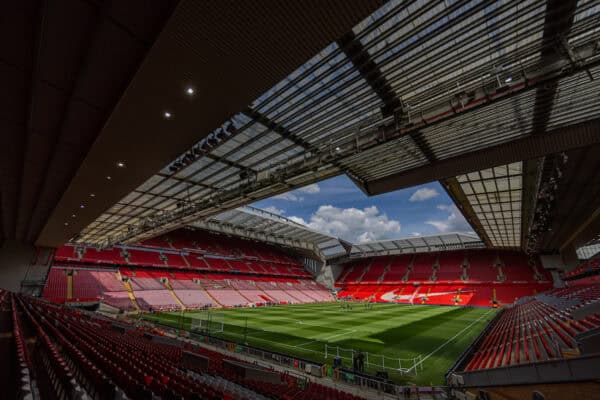
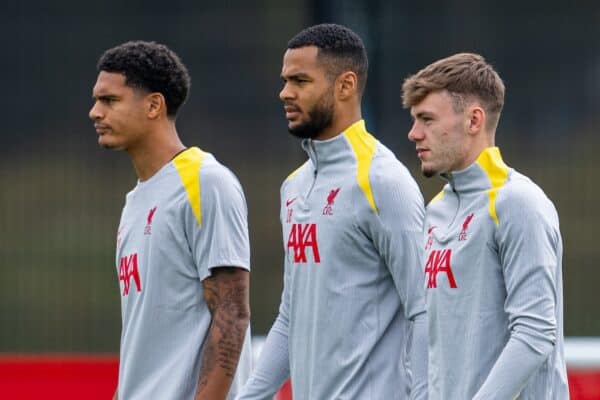
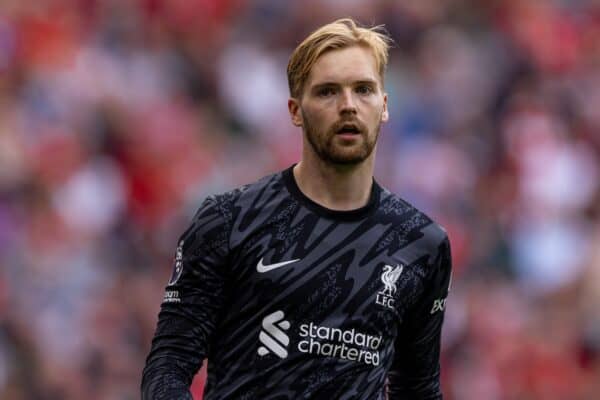






Fan Comments